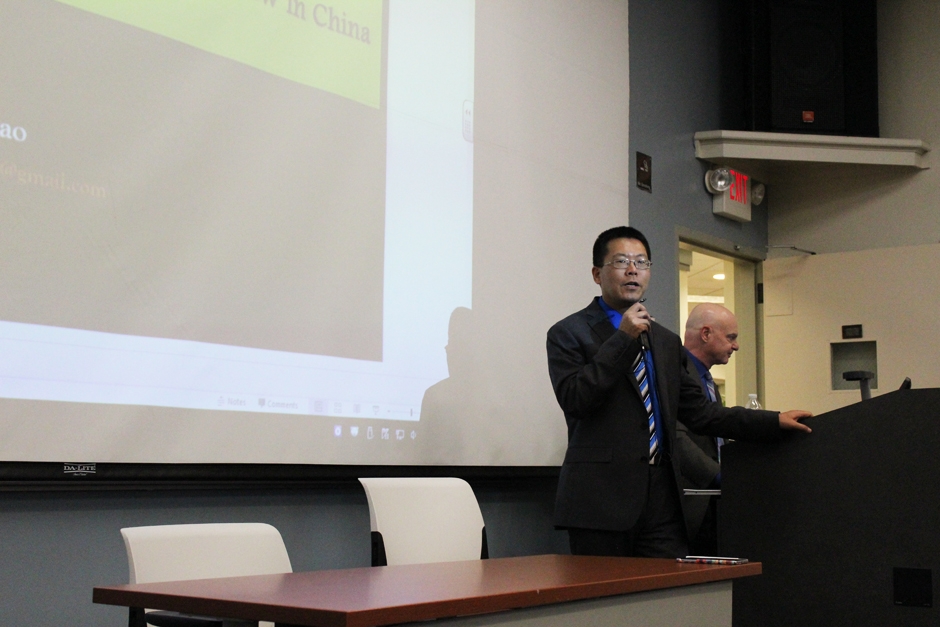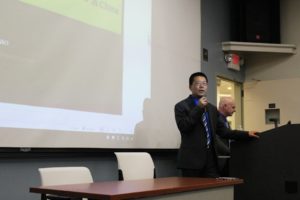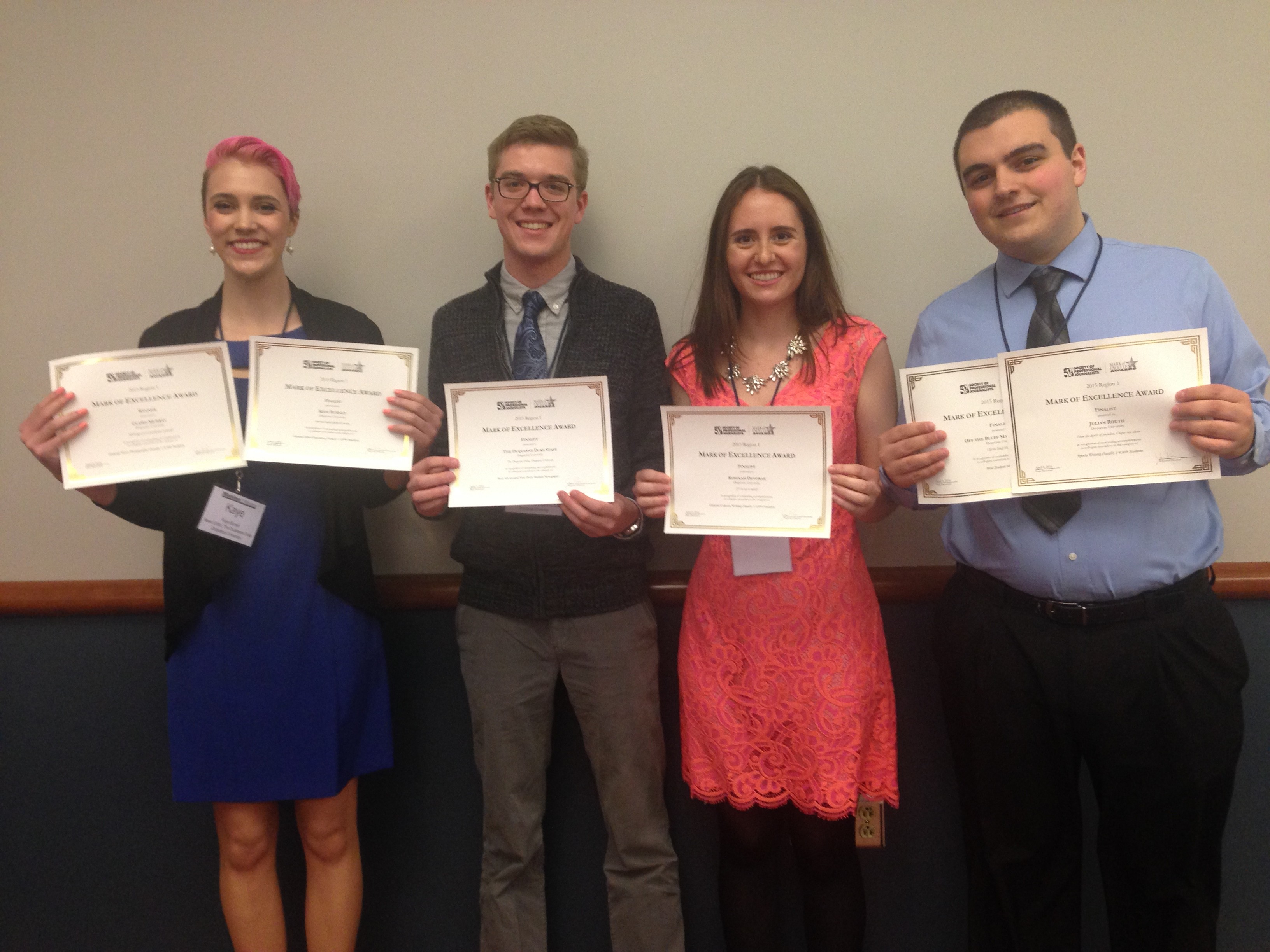
Teng Biao, a Chinese lawyer and political dissident, spoke at a lecture in College Hall Room 103 on March 20.

Teng Biao, a Chinese lawyer and political dissident, spoke at a lecture in College Hall Room 103 on March 20.
Zachary Landau | Asst. A&E Editor
On March 20, Chinese lawyer and dissident Teng Biao gave a presentation on the state of civil rights in China to kick off Duquesne’s involvement with the Scholars At Risk (SAR) network.
SAR, which Duquesne recently joined, is an international network of institutions and individuals whose mission it is to protect scholars and promote academic freedom, according to their website.
Biao himself relied on SAR to escape China during the recent “crackdown” of intellectuals and human rights lawyers for his work in fighting against the Chinese government.
While he has provided counsel for numerous human rights cases, Biao heavily focuses on the death penalty.
“The death penalty is required for a totalitarian system,” Biao said during the presentation’s Q&A section. “And the Communist Party needs the death penalty as a deterrent, as intimidation.”
Biao has been a part of many movements and cofounded The China Human Rights Accountability Center and China Anti-Torture Alliance.
Unlike other dissidents, Biao has remained an outspoken critic of the Chinese government even after leaving the country.
“Many lawyers, and many of them are my close friends, are in prison, and they suffer a lot,” Biao said. “It’s really my moral obligation to speak up.
“I’ve fought for freedom and democracy since 2003. It’s my dream.”
The focus of Biao’s presentation was the history and current status of the human rights movement in China. He specifically called attention to practices used by the Chinese government to silence opposition, including detention centers, torture and capital punishment.
He also mentioned the different ways activists have started working to protest the government, including the rise of social media.
“In China, organizing an opposition party or a formal opposition is too dangerous. The price is too high,” he said. “After the rights movement started, we used social media to develop all kinds of organizations, like New Citizens’ Movement, the Southern Street Movement or the human-rights lawyers’ group.”
Currently, Biao is a visiting professor at New York University and is working on a book exploring his encounters with government enforcement. For example, Biao was kidnapped, detained and tortured in 2011.
“I was forced to sit down on the floor, facing the wall and wearing handcuffs,” Biao said. “And from 6 a.m. to 12 midnight. And I was forced not to move. If I moved a little bit, they’d beat me.”
Biao emphasized the importance for students to pay attention to human rights in China because of its importance on the world stage.
“It’s not easy to pay attention to human rights issues in other countries,” Biao said. “But I hope more and more people, more and more Duquesne students, can pay attention to China and human rights.
“China is playing an important role on the international stage, and China has a lot of business in the United States.”
SAR has been in operation since 1999. Its mission statement, as stated on its website, is “to protect and promote academic freedom” internationally by providing temporary positions at member universities. It also provides advice, updates and campaigns for intellectuals who are persecuted in their countries.
Clifford Bob, professor and chair of Duquesne’s political science department, helped organize the event. He applauded Biao’s decision to explain the struggle that Chinese human rights advocates face for speaking out against their government.
“I think a lot of us in the U.S. are not that aware of how Chinese lawyers in particular have been able to use Chinese law and the Chinese Constitution to try and fight against the Communist Party’s rule and try to help individuals who are threatened with everything from forced abortion to the death penalty to imprisonment for forming a democratic party,” Bob said.
Bob echoed Biao’s hopes that students will become more aware of the struggle that human rights activists face in China.
“I just generally hope that students from across the university… were able to learn about oppression of the Internet in China or the ways in which institutions we think as independent, like courts or universities, are very much controlled by the Chinese government,” he said.
Bob also expresses hope that students will get involved advocating for at-risk scholars.
“There are varieties of ways one can get involved with [SAR],” he said. “One of them that you can do is to become part of these action campaigns, where there are lists of scholars, and whole countries [where scholars are targeted].”
Bob detailed a way that students can make their voices heard in support of the persecuted scholars.
“And you can send out messages and letters to the leaders of these countries as well as heads of the State Department here in the U.S. to help [scholars] get out of the situations they are in, often in jail or being persecuted or detained.”




